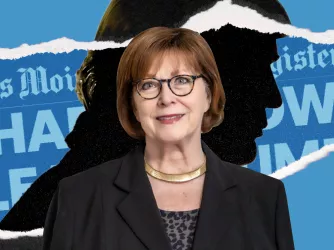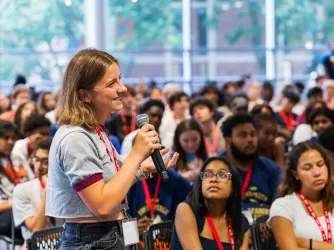Table of Contents
Virginia’s Attorney General Defends Fraud Investigation of Professor
Last month, I wrote about Attorney General of Virginia Kenneth T. Cuccinelli, II's sweeping demands for documents relating to the research of a former University of Virginia professor, Michael Mann, one of the professors involved in the "Climategate" controversy. Cuccinelli now has responded (PDF) to the university's legal challenge to his demands.
When the university challenged his demands, I wrote:
Fraud is a serious charge, one that needs to be firmly distinguished from simple disagreement with a researcher's methods or analysis, even when the disagreement is very vehement. Trying to turn up evidence of fraud through a massive and burdensome document request on a university ... is guaranteed to serve to discourage universities from tackling any kind of controversial research at all. ... [I]f the Attorney General has any real evidence to go on, we would all be better served if he would immediately produce it.
Our letter to Cuccinelli similarly challenged him to demonstrate that he had enough evidence to prove that his request was something other than a politically motivated fishing expedition:
This investigation provides a dangerous opening for politically motivated attacks on the academy from elected officials. Once the precedent of using FATA [Virginia's Fraud Against Taxpayers Act] to investigate academic research has been set, no professor studying anything controversial at a Virginia public institution of higher education will be safe. ... Worse yet, such a precedent could lead Virginia universities themselves to discourage research into controversial fields of study lest any unpopular conclusions attract politically motivated and unfair investigations by elected officials. ... The academic enterprise thrives on transparency; if your investigation is to be taken as more than a witch hunt, the academy awaits your justification for such an unprecedented intrusion into the peer-reviewed work of a faculty member at Thomas Jefferson's university.
Well, Cuccinelli now has provided his justification, and it will be up to the court to decide whether it is good enough. We reprint the key section here for you to make up your own mind:
[V]arious statements or methods have been attributed to Dr. Mann including the fact that he developed a "trick" in order to "hide the decline" and that he indicated to a research colleague in England that "[a]s we all know, this isn't about truth at all, its [sic] about plausibly deniable accusations." Respondent [Cuccinelli] admits that, much like the FATA investigation at issue here, governmental bodies in England felt the revelations warranted a governmental investigation. ... [I]t is unlikely that those investigations had access to the materials sought by the CIDs [Cuccinelli's Civil Investigative Demands] because, based upon the representations of prior counsel, prior to discovering a previously overlooked back-up e-mail server containing responsive documents as a result of the search put in motion by the CIDs, the University had previously maintained that it was not in possession of Dr. Mann's e-mails from the time he was at the University. [Answer, par. 10]
Cuccinelli thus challenges the argument that the prior investigations of Mann were sufficient, responding that they did not have access to all of the potentially relevant information.
Even if one grants that Cuccinelli's grounds for investigation are now sufficiently explained, however, it remains extremely unusual that this investigation is being pursued as a matter of potential fraud against taxpayers—rather than as an academic matter under which all of the same evidence could be evaluated transparently and expertly by Mann's most objective peers.
Recent Articles
FIRE’s award-winning Newsdesk covers the free speech news you need to stay informed.

FIRE’s defense of pollster J. Ann Selzer against Donald Trump’s lawsuit is First Amendment 101

Cosmetologists can’t shoot a gun? FIRE ‘blasts’ tech college for punishing student over target practice video

China’s censorship goes global — from secret police stations to video games
